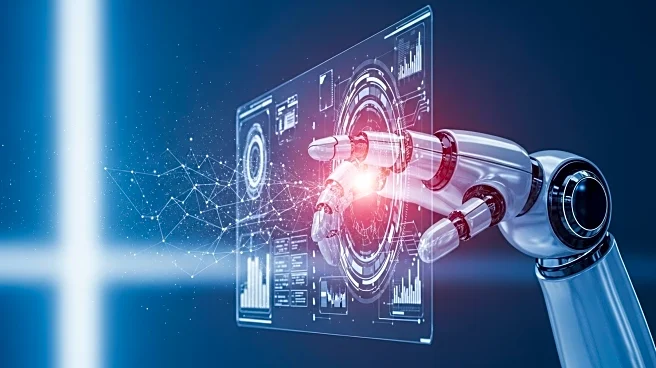What's Happening?
A recent survey conducted by the Society for Human Resource Management (SHRM) has revealed significant insights into the impact of artificial intelligence on job automation, particularly in fields dominated by math and computer functions. The survey, which included responses from over 20,000 U.S. workers, found that software engineering and similar professions are at high risk of automation due to AI advancements. Approximately 12.8% of jobs in computer and mathematical fields have at least 50% of their tasks automated, with no significant nontechnical barriers preventing further automation. Despite these findings, only about 6% of U.S. jobs are considered vulnerable to displacement by AI, suggesting a gradual rather than abrupt shift in the labor market.
Why It's Important?
The survey's findings underscore the transformative potential of AI in reshaping the workforce, particularly in technical fields. While AI can automate many tasks, the presence of nontechnical barriers such as client preferences and regulatory requirements may slow down the pace of job displacement. This gradual transition could allow industries and workers to adapt to new roles and responsibilities, emphasizing the need for skills that AI cannot easily replicate, such as human interaction and problem-solving. The healthcare industry, for example, continues to grow and remains less susceptible to automation due to its reliance on human-to-human interaction.
What's Next?
As AI technology continues to evolve, industries may face increasing pressure to integrate AI into their operations while balancing the need for human oversight and interaction. Companies may need to invest in retraining programs to equip workers with skills that complement AI capabilities, focusing on areas where human judgment and creativity are essential. Additionally, regulatory frameworks may need to adapt to address the ethical and legal implications of AI-driven automation, ensuring that workers' rights and job security are protected.
Beyond the Headlines
The survey highlights a broader societal shift towards valuing human-centric skills over purely technical abilities. As AI becomes more prevalent, the demand for workers who can navigate complex interpersonal dynamics and provide personalized services may increase. This shift could lead to a reevaluation of educational priorities, encouraging a balance between technical proficiency and soft skills development.












